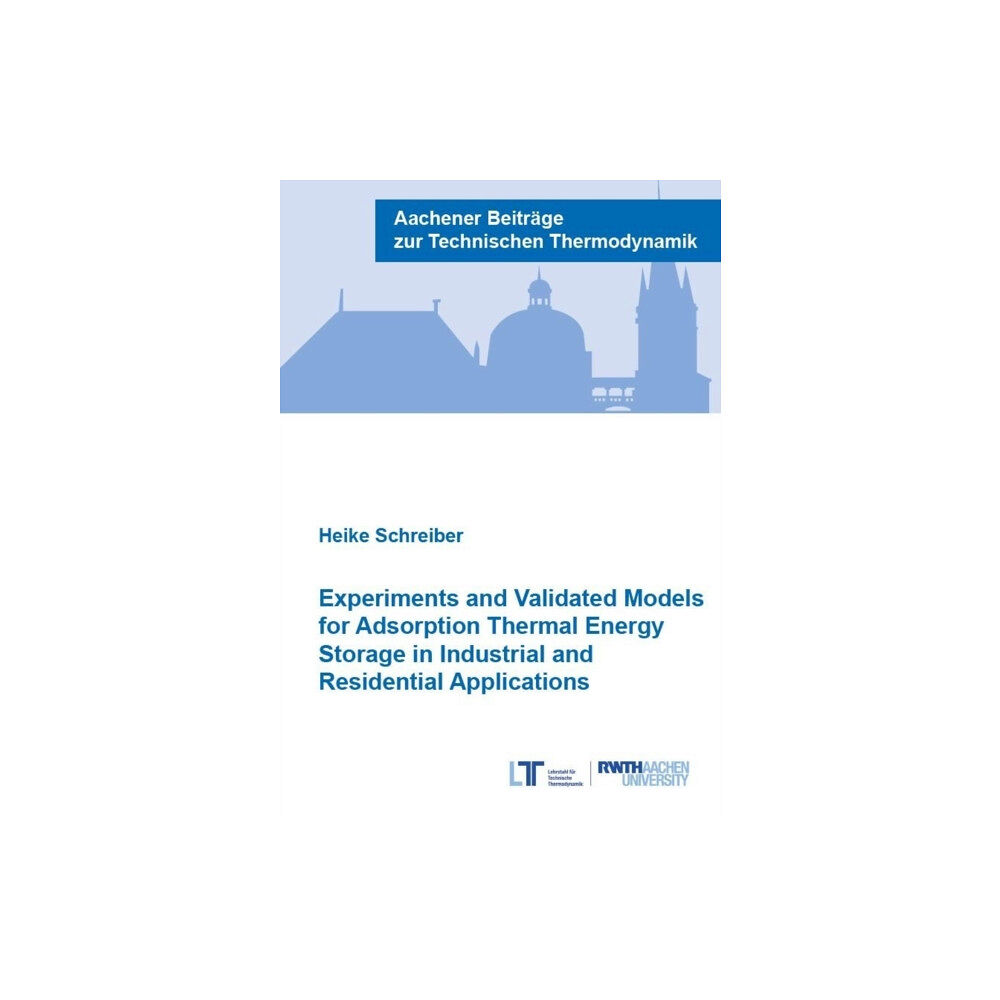- Hem
- Böcker
- Kurslitteratur
- Teknik, Industri & IT
- Experiments and Validated Models for Adsorption Thermal Energy Storage in Industrial and Residential Applications (häfta...

Experiments and Validated Models for Adsorption Thermal Energy Storage in Industrial and Residential Applications (häfta...
Thermal energy storage (TES) helps to reduce energy consumption and peak demands by balancing heat supply and demand on all time scales f...
- Fri frakt
Produktbeskrivning
Thermal energy storage (TES) helps to reduce energy consumption and peak demands by balancing heat supply and demand on all time scales from short-term to seasonal. Thus, TES is an important technology to improve flexibility and efficiency of energy systems. In particular, adsorption TES systems, which exploit the enthalpy of adsorption, provide high energy storage density and high efficiency.
The present thesis therefore analyzes an adsorption TES unit for residential and industrial applications.
Industrial energy supply can be made more efficient by integrating waste heat into the process heat supply and by using energy-efficient technologies. Adsorption TES contributes to both approaches: waste heat can be integrated via the heat pump effect and TES allows for energy-efficient cogeneration heat supply for batch processes.
We evaluate the energy efficiency of the heat supply for an industrial batch process by adsorption TES and cogeneration.
To evaluate the performance, a dynamic model of an adsorption TES unit is developed. Measurements from earlier experimental investigations of an adsorption TES unit are used to calibrate the storage model. As benchmark, a peak boiler and TES based on a phase-change material are considered.
Our comparison demonstrates the significance of the process conditions for the choice of the appropriate technology. The study shows that adsorption TES offers significant potential to increase the energy efficiency: primary energy consumption can be reduced by up to 25%.
The key is the availability of low-grade heat at times of discharging and of a low-grade heat demand when charging the storage unit.
The study reveals that a comprehensive evaluation of the storage performance requires dynamic models that precisely describe the storage performance and the heat losses in particular.
The present thesis provides the basis with a new experimental setup to precisely characterize the adsorption TES unit. In an experimental analysis of the TES performance, we quantify the heat losses, the energy recovery ratio (69–91%) and the energy storage density (20.4 kWh/m3) of the adsorption TES unit for varying charging temperatures and storage times ranging from continuous operation to seasonal storage.
The extensive experimental study provides the basis to improve our model of the adsorption TES unit.
The model is calibrated to heat-loss measurements and a storagecycle measurement. We quantify the simulation accuracy and validate the model with measurements at various process conditions. The model achieves a higher prediction accuracy than other models from literature.
The thesis thus provides a basis for future investigations of energy systems to exploit the advantages of adsorption TES.
| Format | Häftad |
| Omfång | 180 sidor |
| Språk | Engelska |
| Förlag | Verlag G. Mainz |
| Utgivningsdatum | 2017-09-19 |
| ISBN | 9783958861787 |
Specifikation
Böcker
- Häftad, 180, Engelska, Verlag G. Mainz, 2017-09-19, 9783958861787
Leverans
Betalning
Specifikation
Böcker
- Format Häftad
- Antal sidor 180
- Språk Engelska
- Förlag Verlag G. Mainz
- Utgivningsdatum 2017-09-19
- ISBN 9783958861787
